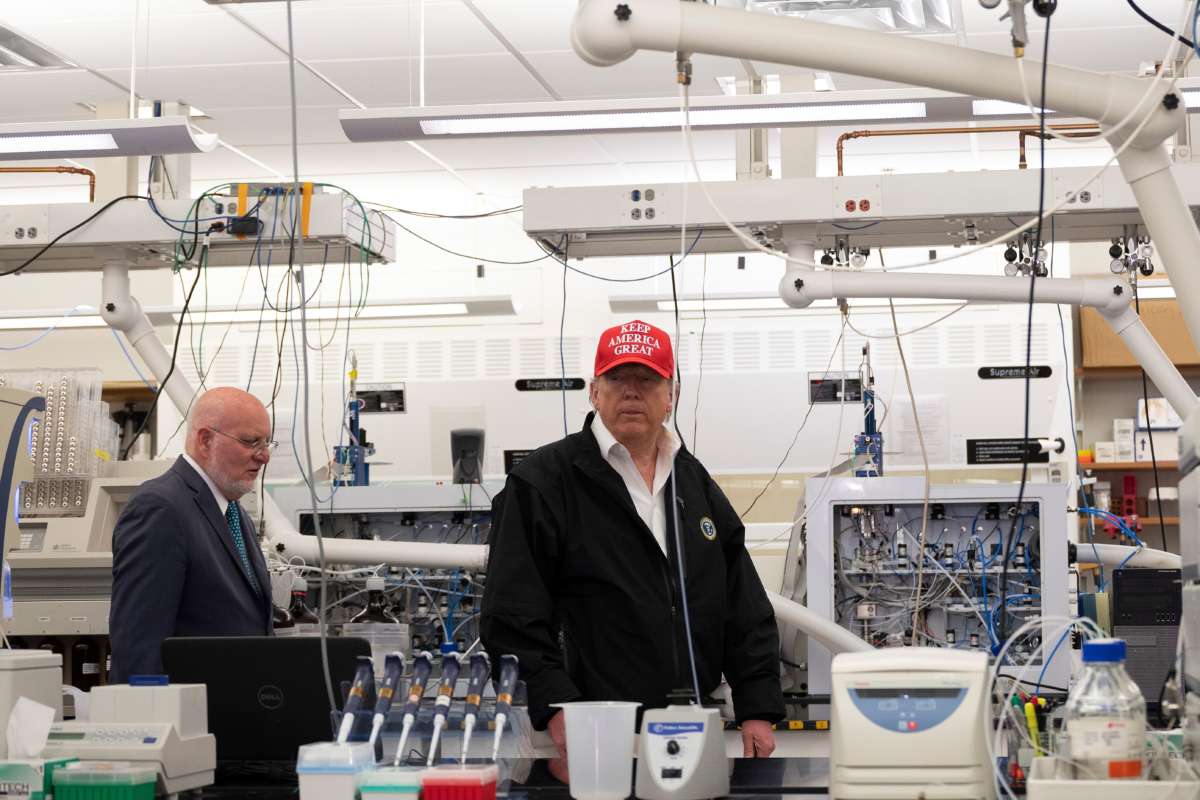Part of the Series
Despair and Disparity: The Uneven Burdens of COVID-19
Presidents always take credit for the positive things that happen on their watch, but Donald Trump has gone to a whole new level. He endlessly touted the “best economy ever,” even though, under his watch, we just saw the continuation of trends from the Barack Obama years.
There was a modest pickup in GDP growth, with the average for the first three years of the Trump administration being 2.5 percent, compared to an average of 2.3 percent in the last three years of the Obama administration. By contrast, the pace of job growth slowed, from 224,000 to 182,000 over the same period.
There was little change in most other macroeconomic variables between the two administrations, as we saw the gradual improvement in the labor market under the Obama years continue into the Trump years. That meant things were getting better on the whole. However, the hundreds of thousands of people who lost health insurance in the Trump years are likely to disagree with his boasts of the best economy ever, as are people facing crushing student loan debt.
But this is all past tense. One problem for those who want to take credit for everything good that happens on their watch is that they also have to take responsibility for the bad things that happen. In that sense, coronavirus completely belongs to Trump, although unlike the path of the economy, he really does bear responsibility.
At the most basic level, the epidemic itself was hardly a surprise. It was first reported in China in December of last year.
A serious president would have been taking the lead in organizing an international response. But Trump was busy doing other things. In addition to his golf games, Trump was holding campaign rallies and fundraisers around the country. When he wasn’t traveling, he was busy on Twitter making boasts about the economy, lying about his poll results and directing schoolyard taunts against his political opponents. With such a busy schedule, how could we expect Trump to have time to worry about a pandemic?
It gets worse. Trump had dismantled the Centers for Disease Control and Prevention’s (CDC) team to deal with pandemics. The CDC was also coping with Trump budget cuts, and is facing another cut of 16 percent slated for next year.
Trump also attacked those who tried to warn of the risks of the virus. He claimed the whole thing was a Democratic hoax, and said that the United States had 15 cases and that the number would fall quickly.
He then went full Trumpian in his management style, pushing aside the public health experts at the CDC, and putting Vice President Mike Pence in charge of protecting the country from the pandemic. Pence’s main credentials for this task are a disbelief in science (he doesn’t believe in evolution or global warming) and a failed effort to stem the spread of AIDS when he was governor of Indiana.
Trump also attempted to clamp down on any accurate, concrete information that would contradict his “no-big-deal” story. He required that Pence clear all statements from the CDC. Using his famed vindictiveness, he also retaliated against a Health and Human Services whistleblower who reported that people exposed to coronavirus on a cruise ship were greeted by health care workers without protective gear or training.
In short, the fact that we are likely facing a serious pandemic, unlike any we have seen in more than a century, is 100 percent Trump’s fault. Because of his vanity and ineptitude, people will die, and many more will get sick. It is very likely that we will face a recession as people cancel travel plans and are reluctant to go out to restaurants, sporting events and other public places.
At this point, we can only speculate how bad things will get. But let us say it loud and clear: “Thank you, President Trump!”
Join us in defending the truth before it’s too late
The future of independent journalism is uncertain, and the consequences of losing it are too grave to ignore. To ensure Truthout remains safe, strong, and free, we need to raise $44,000 in the next 6 days. Every dollar raised goes directly toward the costs of producing news you can trust.
Please give what you can — because by supporting us with a tax-deductible donation, you’re not just preserving a source of news, you’re helping to safeguard what’s left of our democracy.
